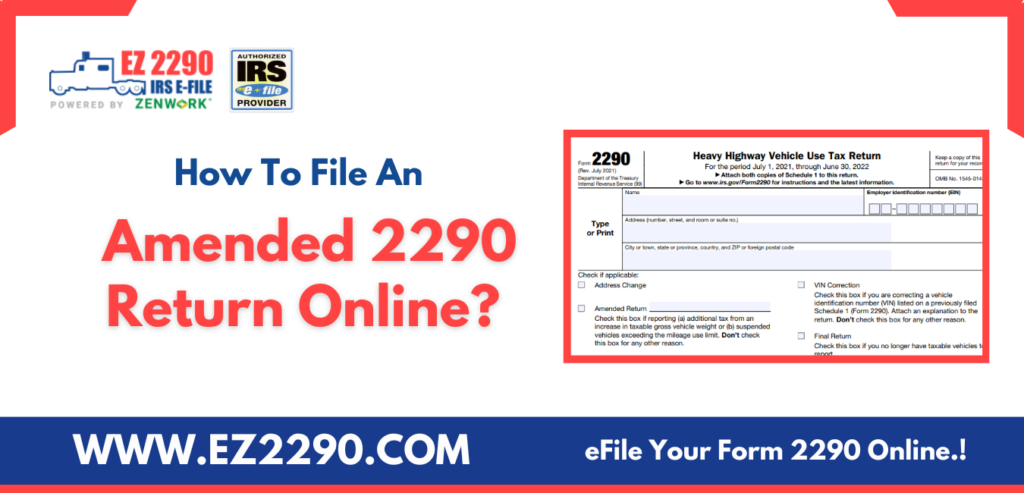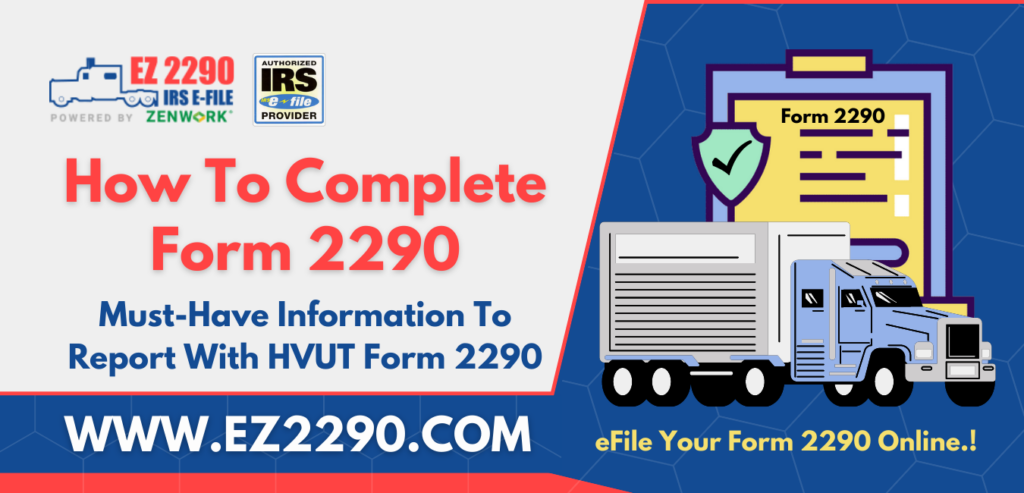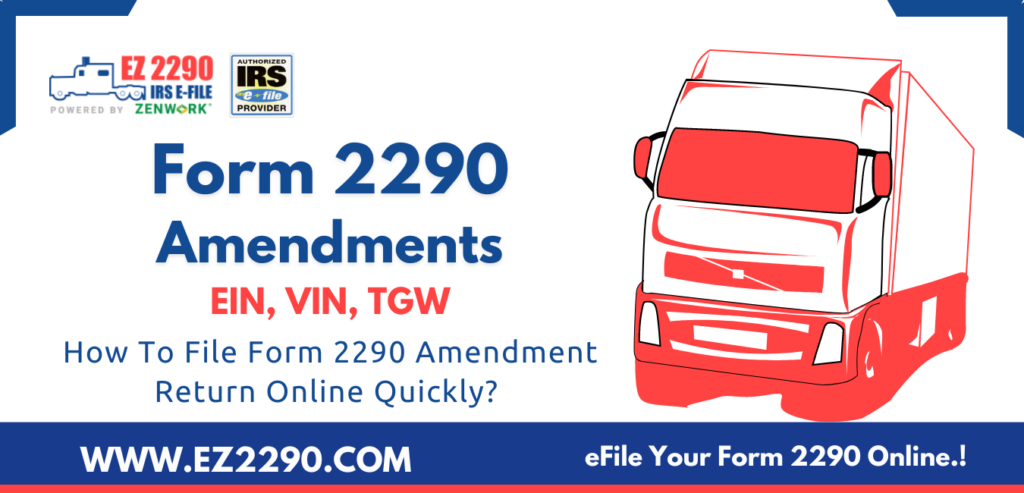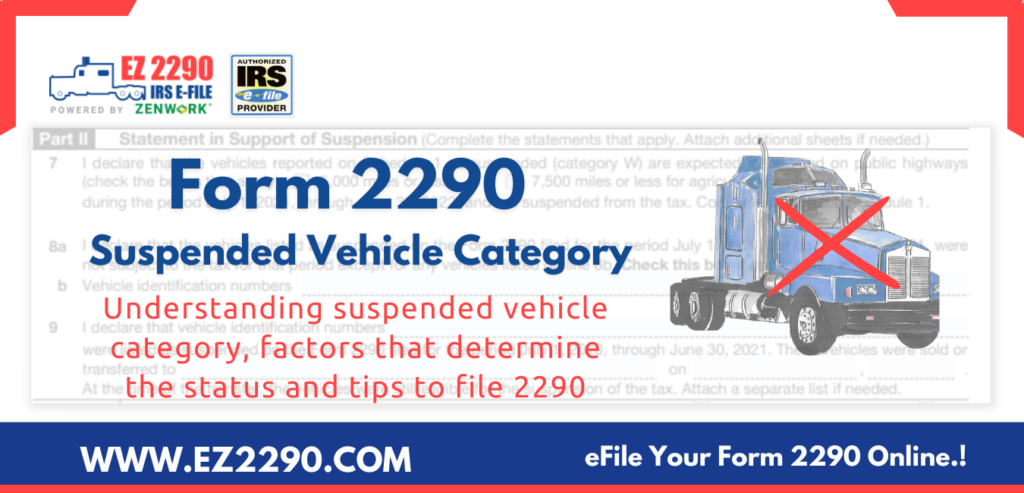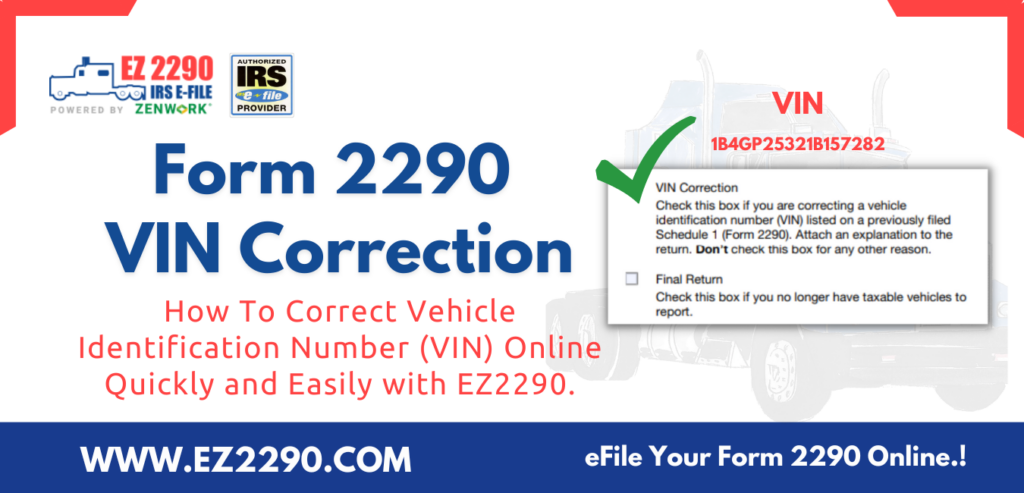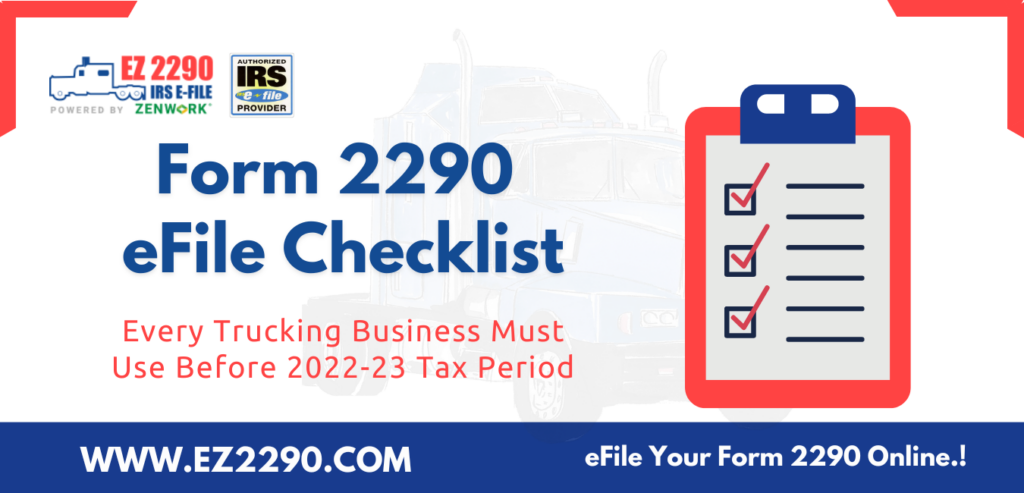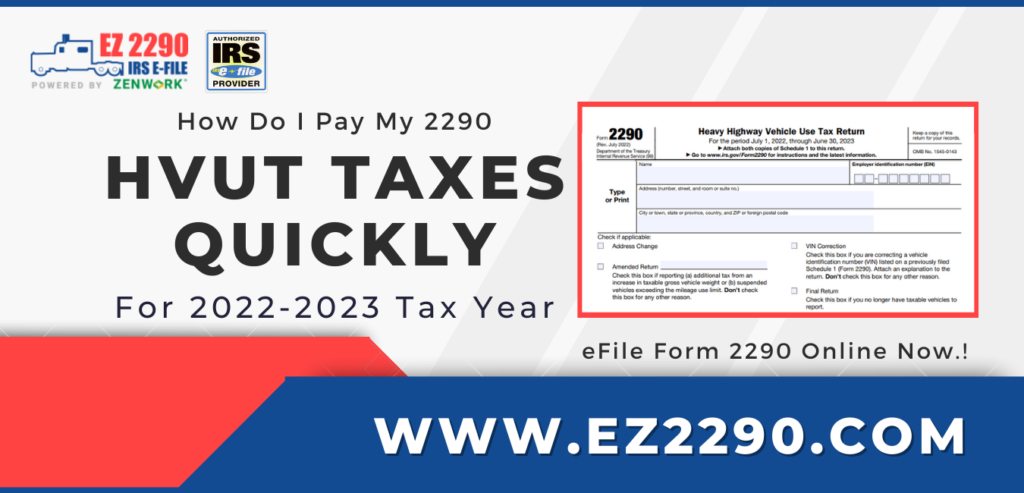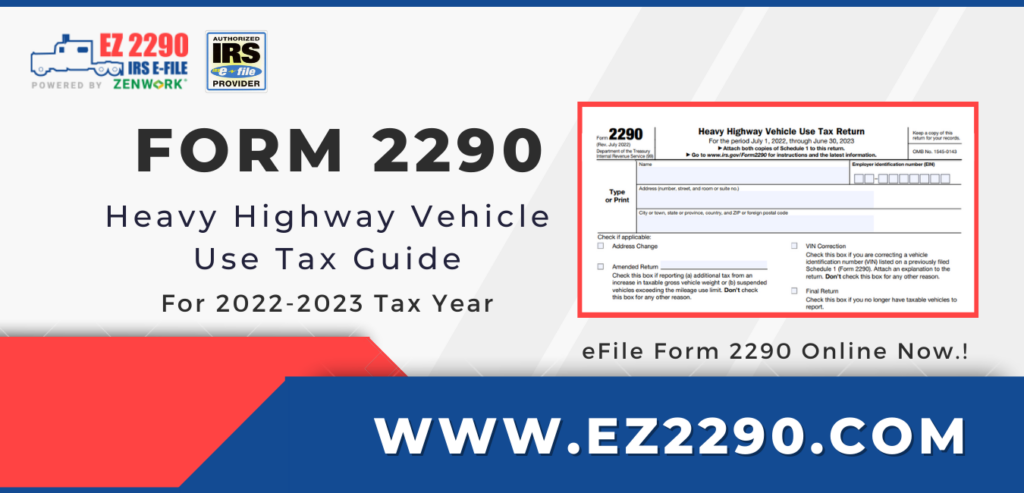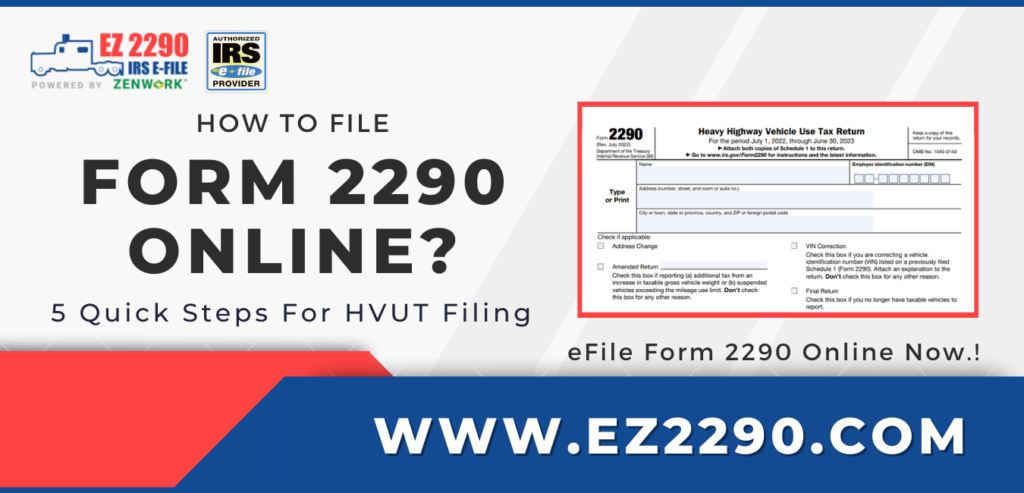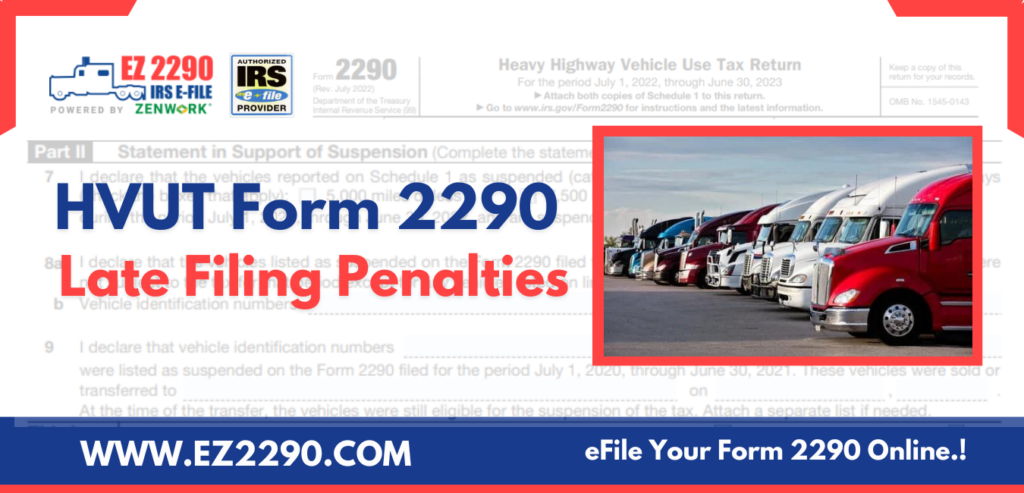
Here’s what happens when you delay your 2290 filings beyond the IRS due date.
Are you someone who likes to live life on the edge?
Or someone who isn’t easily scared?
Or perhaps you’re just a regular human being who procrastinates.
No matter who you are, you can’t risk missing your 2990 filings beyond the IRS due date.
But what would happen IF you delay filing your 2290 forms?
How would the IRS respond?
Would there be any penalties?
And if so, how big?
Are there any exceptions for those who genuinely couldn’t file with a reasonable cause?
Let’s learn all about it in the following discussion.
What Is Form 2290?
Form 2290 is an IRS form that specifically deals with heavy highway vehicle usage tax. Self-employed truckers and trucking businesses must file a Form 2290 to report certain vehicle information and pay the excise tax.
If you’re a self-employed trucker or a trucking company, you need to prepare and file a Form 2290 for all vehicles that weigh 55,000 pounds or more.
When Is Form 2290 Due?
The current filing period for 2290 forms begins on July 1, 2022, and ends by June 30, 2023.
Use the following 2290 filing table to prepare and file your 2290 returns.
| If The Vehicle Is First Used During This Period | File Form 2290 And Make Your Payment By | Enter This Date On Form 2290, Line 1 |
| July | August 31 | YYYY07 |
| August | September 30 | YYYY08 |
| September | October 31 | YYYY09 |
| October | November 30 | YYYY10 |
| November | December 31 | YYYY11 |
| December | January 31 | YYYY12 |
| January | Last day of February | YYYY01 |
| February | March 31 | YYYY02 |
| March | April 30 | YYYY03 |
| April | May 31 | YYYY04 |
| May | June 30 | YYYY05 |
| June | July 31 | YYYY06 |
Delaying Your 2290 Filings: Conflicted Perspectives
What would happen if you were to delay your 2290 filings?
Hey, not everyone is trying to disobey the rules.
Sometimes, life happens, and we simply can’t get to these regulatory obligations no matter how much we plan ahead.
So, then what? Would the IRS still penalize you?
There’s a precondition here.
The IRS will consider extending the deadline if you have a reasonable cause.
If you’re acting in good faith, and you’re not delaying your filings due to willful neglect, then the IRS can make an exception for you.
Here’s a comprehensive explanation of all reasons that the IRS considers to be the conduct of good faith.
Remember that the deadline is just to relieve you from the prescribed filing deadlines and not the taxes.
Even if your request is accepted, you’ll still need to pay your HVUT at least partially to avoid penalty assessments.
Penalties For Delaying Form 2290 Filings In 2022
If you fail to file your HVUT Form 2290 by the deadline, the penalty would be around 4.5% of the total tax you owe to the IRS. The penalty will continue to increase for up to 5 months until you pay it off in full.
If you fail to pay your HVUT, the penalty is 0.5% of your total tax amount. This penalty will continue to accrue an additional interest of 0.54% of the tax, per month.
Now, let’s assume that your vehicle weighs over 77,000 pounds. The HVUT tax on such a vehicle is $550.
So, delaying your 2290 form filings would increase the amount to $700 (approximately). That’s roughly $150 more than what you’re required to pay initially.
And the penalty will drastically increase as the number of vehicles increases.
However, if you have a reasonable cause for not filing your returns on time, you could request an extension, which would reduce the strain of penalties on your business.
Take a quick look at this list of reasonable causes that the IRS considers for penalty relief.
What Is 2290 Filing Extension?
File for an extension if you’re able to foresee that your firm may not be able to meet the 2290 deadline despite your best efforts.
Note that you must file an extension before the deadline. Filing for an extension does not warrant an extension of tax payment. You’ll still need to pay your taxes at least in part or in full.
To file for an extension of the 2290 filing deadline, you need to write a letter and send it to the following address in order to communicate your reasons.
Address:
Internal Revenue Service
7940 Kentucky Drive
Florence, KY 41042-2915
You need to provide a detailed explanation of your case and attach any supporting documentation for proof.
How To Prevent 2290 Form Late Filing Penalties?
- Pay your taxes and file for an extension
If you just need an extension to file your 2290 returns, consider paying your taxes to avoid penalty assessments. This will buy you some time to prepare and file your 2290 returns.
- File for an extension of HVUT payment and deadline
Sometimes, businesses need time to file the IRS forms and the time to pay their tax. In such a case, write a letter to the IRS and request for an extension. If the IRS accepts such a request, you have time to file and pay your tax.
- Plan and schedule your filings in advance
There are many ways to prevent being penalized by the IRS for delayed 2290 filings. However, nothing tops filing your 2290 forms on time and paying your HVUT tax on time.
So, make use of certain productivity tools available online to remind yourself of the fast-approaching deadlines.
- For starters, you can subscribe to EZ2290’s email list, so you receive email alerts about deadlines, important updates from the IRS, and useful tips on 2290 filings. This way you never miss a deadline and get all the information you need in one place from a verified source.
- Ask your Google Assistant to remind you about the 2290 filing deadlines as soon as the calendar year begins. Alternatively, you can set up reminders/events on your web calendars.
- And lastly, prepare and draft your 2290 returns in advance with EZ2290. Import your vehicle data with Excel and prepare the 2290 forms without switching platforms. If the vehicle data needs to be changed, you can do it online.
- Use EZ2290’s HVUT Tax Calculator to get an estimate of the tax you need to pay. Set this amount aside prior to filings, so you never run short of funds to pay your taxes.
Sign Up Now With EZ2290 & eFile Form 2290
Other Useful Reads From Ez2290 Blog
